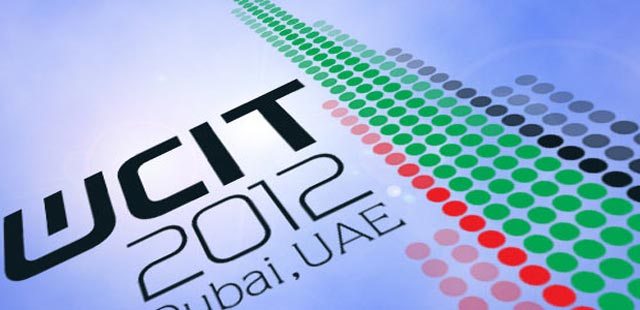At this week’s UN Conference, the stakes for the future of the Internet couldn’t be higher Comment
New in Ceasefire, Politics - Posted on Tuesday, December 11, 2012 0:00 - 0 Comments

The future of the Internet is currently being charted as delegates from over 190 countries meet at the International Telecommunication Union (ITU) summit held in Dubai. The UN body regulates global telecommunication and is now convening to update international telecommunications regulations (ITRs), a binding treaty, which has not been revised since 1988[1]. Much is at stake for democracy and free speech, as some countries participating in the summit threaten the open model of the Internet that exists today.
The Internet has been something of a lodestone for democracy and free speech champions all around the world, mainly due to its wider accessibility and relatively low costs compared to other mediums of communication.
In addition to serving as a podium for democracy activists, the Internet has also been an effective tool for political mobilisation and organization. It has certainly been credited with much of the transformations sweeping the Arab World today. Social media websites such as Twitter and Facebook played a vital role during the uprisings in Egypt and Tunisia.
It is, perhaps, these very attributes of the Internet that are driving some countries to advocate for a more restricted model of operation for the Internet during the on-going talks of the World Conference on International Telecommunications in Dubai. Countries such as Russia and China lead an informal bloc of mostly authoritarian governments in developing nations in the calls for a more centralised regime of Internet governance.
A number of developing nations argue that greater control over Internet content and traffic will enable them to generate much-needed revenues, which could be extracted through a levy on traffic. Nevertheless, these countries downplay the impact of such proposed model on freedom of speech and the free flow of information.
On the other side of the spectrum lie Western nations led by the U.S and the EU and their allies in the net business world, who would like to maintain the status quo. This bloc shares the global consensus over the need for revising regulations to deal with new issues such as cybercrime, but stands firmly against any attempt to expand UN dominion over the Internet.
However, supporters and opponents on all sides have largely palliated the fundamental error of the current process. While other issues related to international telecoms are also being discussed at the summit, Internet freedom certainly tops the agenda. The future of the Internet is essentially being decided by a UN agency, an intergovernmental body. This is the fundamental error threatening the open Internet, freedom of speech and ultimately democracy.
Indeed, the ITU is composed primarily of governments and private sector entities. The idea that governments and the private sector alone should decide the future direction of the Internet raises grave concerns.
Indeed, the absence of visible and formal representation of civil society in the organisational structure of the ITU and during its summit is quite alarming. Civil society organisations, especially in non-democratic countries, are better able to reflect the will and desires of citizens compared to governments.
Wider participation of civil society would ensure that the voices of the majority of Internet users are actually being considered during the talks, which would be a welcomed boost to the exercise of democracy and inclusiveness in global affairs.
The revenue-seeking postures of some developing nations at the summit are understandable considering their historical disadvantage, which international development policies orchestrated mainly by the West have placed them in. However, developing nations need to realise that their long-term economic and social progress lie with an open Internet model in which information can flow freely across international borders.
Such a model can play a pivotal role in promoting education and knowledge-based industries in the Global South. Enshrining and cementing this open model in a binding international treaty such as the ITRs might also spare some developing nations the perils of censorship, often imposed by governments to cripple democratic aspirations.



Leave a Reply